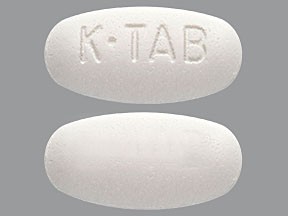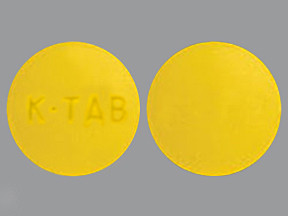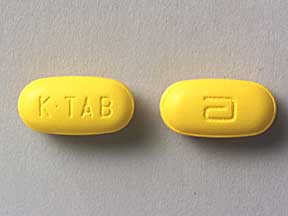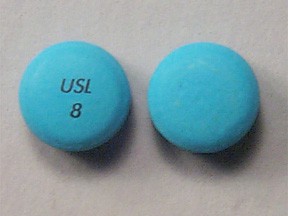POTASSIUM EXTENDED-RELEASE - ORAL
PHONETIC PRONUNCIATION: (poe-TAS-ee-um)
COMMON BRAND NAME(S): Micro-K-10
GENERIC NAME(S): potassium chloride
Uses
USES: This medication is a mineral supplement used to treat or prevent low amounts of potassium in the blood. A normal level of potassium in the blood is important. Potassium helps your cells, kidneys, heart, muscles, and nerves work properly. Most people get enough potassium by eating a well-balanced diet. Some conditions that can lower your body's potassium level include severe prolonged diarrhea and vomiting, hormone problems such as hyperaldosteronism, or treatment with "water pills"/diuretics.
How to use POTASSIUM EXTENDED-RELEASE - ORAL
HOW TO USE: Take this medication by mouth as directed by your doctor. To prevent stomach upset, take each dose with a meal and a full glass of water (8 ounces/240 milliliters) unless your doctor directs you otherwise. Do not lie down for at least 10 minutes after taking this medication. Do not crush, chew, or suck extended-release capsules or tablets. Doing so can release all of the drug at once, increasing the risk of side effects. Also, do not split extended-release tablets unless they have a score line and your doctor or pharmacist tells you to do so. Swallow the whole or split tablet without crushing or chewing. Swallow the capsules whole. If you have trouble swallowing the capsules, tell your doctor or pharmacist. Some brands may be opened and the contents sprinkled onto a spoonful of cool, soft food such as applesauce or pudding. Immediately swallow the food/medication mixture without chewing. Do not prepare the mixture ahead of time. Drink a glass of cool water after each dose to make sure you swallow all the medication. Ask your pharmacist if you have questions about your brand. Take this medication regularly to get the most benefit from it. To help you remember, take it at the same time(s) each day. The dosage is based on your medical condition and response to treatment. Do not increase your dose or take it more often than prescribed. Do not take more than 20 milliequivalents per dose. Tell your doctor if your condition does not improve or if you have symptoms of low potassium in the blood (such as irregular heartbeat, muscle weakness/cramps).
Side Effects
Precautions
Interactions
Overdose
Images
Reviews
Faq for POTASSIUM EXTENDED-RELEASE - ORAL
- Potassium extended-release oral medication is used to treat or prevent low potassium levels in the body, known as hypokalemia.
- This medication works by replenishing the levels of potassium in the body, which is essential for normal cell function, nerve transmission, and muscle contraction.
- Common side effects include nausea, vomiting, stomach discomfort, diarrhea, and abdominal pain. However, these side effects usually resolve on their own over time.
- It is usually taken with food or immediately after a meal to prevent stomach upset. It is important to swallow the tablets whole, without crushing or chewing them, as this can lead to an increased risk of side effects.
- If you miss a dose, take it as soon as you remember. However, if it is close to the time for your next dose, skip the missed dose and resume your usual dosing schedule. Do not double the dose to make up for a missed one.
- You should inform your doctor about all other medications you are taking, including prescription, over-the-counter, and herbal supplements, as certain medications can interact with potassium supplementation.
- This medication may not be suitable for individuals with certain medical conditions like kidney disease, heart problems, or severe dehydration. It is important to discuss your medical history with your doctor before starting this medication.
- It is important to consult your doctor before using this medication during pregnancy or breastfeeding, as it may have potential risks to the baby.
- The effects of potassium supplementation can vary among individuals. It may take several days to weeks for your potassium levels to return to normal. It is important to follow your doctor's instructions and have regular blood tests to monitor your potassium levels.
Disclaimer
IMPORTANT: HOW TO USE THIS INFORMATION: This is a summary and does NOT have all possible information about this product. This information does not assure that this product is safe, effective, or appropriate for you. This information is not individual medical advice and does not substitute for the advice of your health care professional. Always ask your health care professional for complete information about this product and your specific health needs.




For : This medication made me talk and act out of my head I will never take it again period.
By BubbaDork on 13 Apr, 2025